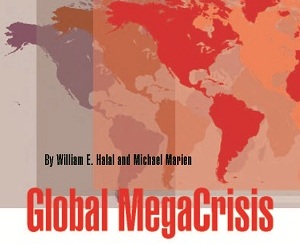The Switch can run Crysis!


The Switch can run Crysis!


The Jet Capsule isn’t an ugly duckling by any means, but designer Pierpaolo Lazzarini imagines a beautiful swan with his latest creation, the Avanguardia. The mega-yacht would feature a small watercraft that would serve as a removable cockpit in this ambitious conceptual project.
The Avanguardia (Vanguard in English) is inspired by an unspecified Japanese Manga from the 1970s and its defining feature is that long “neck.” The idea is that the neck would serve as a crane and could be used to safely deposit a smaller craft in the water when anchor’s dropped, allowing it to be used to reach shore, for example. Interestingly, the neck would actually be placed in a lowered back position while sailing – so presumably the raised position depicted above would end up mostly being used for showing off at port.
“Due to an extendable crane/bridge located in the bow (front) in this case named ‘neck,’ the head can be dropped off and used as an auxiliary 16-meter [52-ft] boat,” explains Lazzarini Design Studio. “During the sailing, the head ‘control tower cockpit’ adjusts its position by lowering in the middle of the mega-yacht body (like a swan, the neck goes in the middle of the wings).”

Welcome to the future of work!
Changing times demand disruptive solutions, and we know that digital experiences are key to boost human connections and improvements. That’s why we’ve created a brand new way of coding that will shake your world.
Globant presents Augmented Coding, an AI-powered solution that will change forever the software development industry. We are reshaping the future of work with a unique coding vision that is here to stay.

This video explains the qualitative test of proteins.


Teleportation is something we have only seen in sci-fi movies or books, but its real-life application is very complex. However, there is a new patent submitted for a full body teleportation system that claims to transport a human being through hyperspace from one location to another.
John St. Clair is the name of the inventor that has submitted that teleportation device patent and here are more details on the claims that teleportation will be possible soon.

For years giant squids were the closest thing we had to a real-life, underwater Sasquatch. Stories of their gargantuan size littered the tales of ancient seafarers and historian throughout millennia, but sometimes their massive corpses washed up on shores, so we knew they existed as more than the seeming myths they had been for centuries. Then in 2004 mankind finally captured our first images of one alive in Japanese waters. Even then it took eight more years for someone to film one swimming along Japan’s shores. Despite growing to enormous sizes – females can reach 43 feet in length, males 33 feet – they have proven to be among the most elusive creatures on Earth, monsters hiding deep below the surface.
And now researchers have finally captured footage of one swimming in U.S. waters.
This video of the infamous cephalopod, which we first heard about at Popular Science, comes from an NOAA team. On June 19 in the Gulf of Mexico, during only their fifth deployment of their Medusa exploratory deep sea probe, the team recorded a young giant squid, approximately 10–12 feet in length, swimming at the camera in a flurry of tentacles and nightmares/dreams (depending on how you feel about the ocean and its horrifying beasts).

Collective Intelligence to Solve the MegaCrisis
William E. Halal, The TechCast Project, George Washington University
The coronavirus is a stark reminder of the devastating damage that could be inflicted by cyberattacks, superbugs, freak weather and a variety of other threats. These wild cards are in addition to the existential challenge posed by climate change, gross inequality, financial meltdowns, autocratic governments, terrorism and other massive problems collectively called the Global MegaCrisis.
I sense the world is so frightened by recent disasters that people are searching for new solutions. They seem ready to break from the past that is no longer working. Climate change is starting to bite, for instance, and there is a growing consensus that the status quo is no longer sustainable.
I have studied this dilemma for decades, and I think it can be best understood as a transition to the next stage of social evolution. The Knowledge Age that dominated the last two decades is fading into the past as AI automates knowledge, forcing us to move beyond knowledge and develop a global consciousness able to resolve the MegaCrisis.
Yes, I know this is a bold claim, but that is how the shift to a world of knowledge looked 40 years ago. When computers filled rooms, I recall telling people that we were entering a world of personal computers. The typical response was “Why would anyone want a personal computer?”
Just so, today’s post-factual era illustrates how the smart phone, social media, and autocrats like Trump have moved public attention beyond knowledge and into a world of values, emotions and beliefs. Now the challenge is to use these new powers of social media to shape a global consciousness, or face disaster. While this may seem impossible, that is always the case before major upheavals. Nobody thought the USSR would collapse up until its very end.
In fact, the Business Roundtable’s recent announcement that business should move beyond the bottom line to include the interests of all stakeholders is revolutionary. It has now been promulgated by the World Economic Forum and other influential bodies. The gravity of this change is such that business is now being told to help resolve the climate crisis. Larry Fink, who runs the biggest investment firm in the world (Black Rock), directed the companies he owns to help address climate costs in their operations; within days, many firms announced climate plans.
This historic shift in consciousness could make corporations models of cooperation for society at large. In short, I think the world is heading toward some type of historic shift in consciousness, a collective epiphany, a code of global ethics, a spiritual revolution, a political paradigm shift or a new mindset. Without a consciousness based on global unity, cooperation and other essential beliefs, there seems little hope. And with a shift to global consciousness, it all seems possible.
Toward a Global Consciousness
The governing ideas inherited from the industrial past are outdated and heading toward disaster. It is a collapse of today’s reigning “materialist” ideology of Capitalism, economic growth, money, power, self-interest, rationality, knowledge, etc. These values remain valid and useful, of course, but they are now badly limited. Prevailing practices in the US, as the most prominent example, are failing to address the climate crisis, low wage employee welfare, universal health care, women’s rights, political gridlock, aging infrastructure and other social issues that lie beyond sheer economics.
This could become a “Collapse of Capitalism” roughly equivalent to the “Collapse of Communism” in the 1990s, and it stems from the same fatal flaw – failure to adapt to a changing world. Communism could not meet the complex demands of the Information Revolution, and now Capitalism seems to be failing to adapt to a unified globe threatened by pandemics, climate change and the other threats making up the MegaCrisis.
The big question remaining is, “What should be the new vision, values, principles, and policies?” At the risk of appearing pedantic, I integrate what has been learned above and my forthcoming book, Beyond Knowledge, to outline five principles of what I consider “global consciousness.”
1. Treat the planet and all life forms as sacred. The Fermi Paradox notes that no other civilizations have been detected after decades of SETI searching. This rarity of life reminds us what a miracle plant Earth really is, and that we are responsible for its well-being.
2. Govern the world as a unified whole. Nations remain the major players in this global order, but they should be lightly governed by some type of global institution like the UN and other international bodies. Individuals should continue to be loyal to their nations and local institutions, but they should also accept their role as global citizens.
3. Collaborate With All Stakeholders. Free enterprise is the basis of society, and the good news is that business is on the verge of becoming cooperative. The Business Roundtable announcement that all stakeholders should be treated equally with investors seems an historic breakthrough. This move to a quasi-democratic form of enterprise could set a new standard for collaborative behavior and human values throughout modern societies. One of the benefits from a tragedy like this crisis may be a loss of faith in the status quo and an urge to cooperate. I see it everywhere, and it is a blessing in disguise emerging out of chaos.
4. Embrace diversity as an asset. Rather than becoming a uniform pallid bureaucracy, a unified world should embrace the wondrous diversity of cultures and individuals. Working across such differences poses a challenge, naturally, but differences are also a source of new knowledge, talents and human energy.
5. Celebrate Community. Any society needs frequent opportunities to gather together in good spirit, enjoy differences and commonalities, and to simply celebrate the glory of life. The World Olympics Games, for instance, are special because they provide a rare feeling of global community. We could witness a flowering of celebratory events over the coming years to nourish the global soul.
Shaping Consciousness
This is only one small study, of course, but I hope it provokes thinking toward a widely held vision for planet Earth at a time of crisis. An historic change in consciousness is hardly done overnight, and the obstacles posed by the status quo are formidable. But the Information Revolution provides a powerful method for shaping consciousness by using the Internet and public media. Think of the explosion of ideas, hatred and forbidden desires released by billions of people blasting into loudspeakers like Facebook and Twitter. Anybody can use the media to shape public opinion instantly, for better or worse.
The task we face is to shape a unified consciousness out of this morass of differences to solve the global crises that loom ahead. Today’s threats to reason is challenging us to counter wrongheaded beliefs and to provide more attractive visions, such as the principles for global consciousness outlined here. I suggest the place to begin is by discussing these ideas as widely as possible, and to shape public opinion roughly along these lines.
Sign up for our newsletter at www.TechCastproject.com
